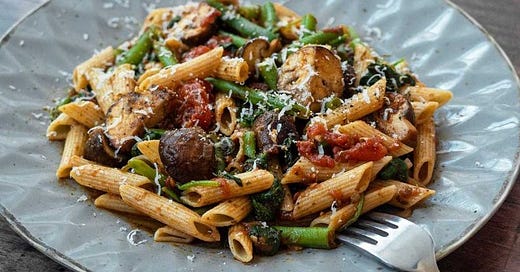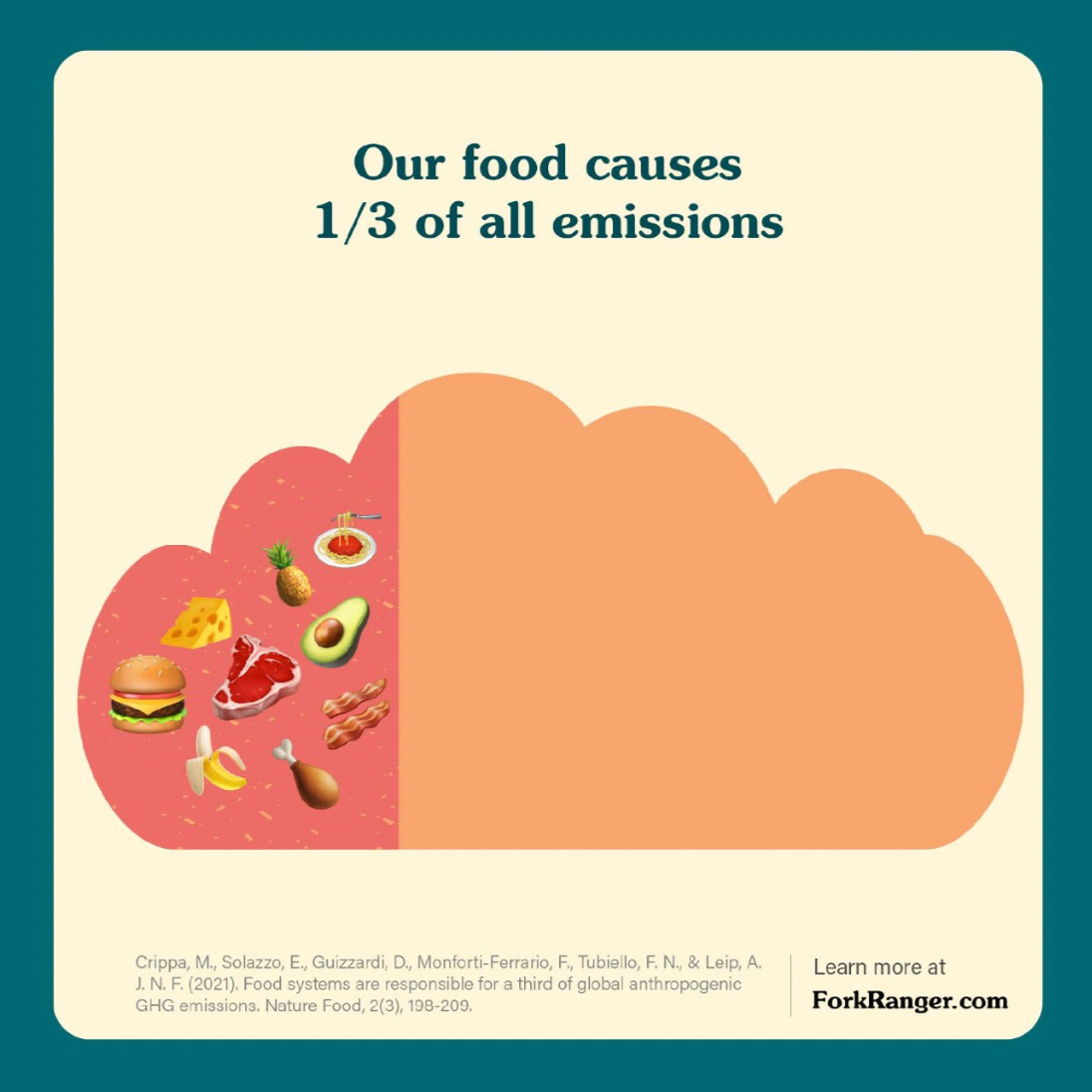Embracing Sustainable Eating: Insights from the Co-Founder of Fork Ranger
Tips on how to eat more sustainably and cook delicious recipes
In our latest edition of “This Week in Sustainability” we had the privilege of speaking with Frank Holleman, the Founder of Fork Ranger, about the pivotal role of food choices in combating climate change. His journey from a casual meat eater to a passionate advocate for sustainable diets offers valuable insights for anyone looking to make a positive impact on the environment through their food choices. Read on to discover Frank's thoughts on why food is key to fighting climate change, his favorite recipe, and practical tips for making sustainable food decisions.
The Start of Fork Ranger
Frank's journey with Fork Ranger began five years ago when he realized the significant impact of food choices on the environment. He discovered that even small dietary changes could make a big difference.
“I definitely wanted to eat less meat, but it felt so difficult because the recipes didn't seem to be made for meat lovers—they seemed more suited for vegetarians, which I wasn't. So, I decided to start collecting my own recipes, and that was the beginning.” Frank Holleman
This realization led to the creation of Fork Ranger—a platform dedicated to helping others find delicious and sustainable food options.
Food's Role in Fighting Climate Change
Our food system is responsible for one-third of all emissions worldwide.1 Addressing food-related emissions is thus crucial for solving the climate crisis.
“We cannot solve the climate crisis without also addressing food-related issues. The main thing when it comes to food is our diet—what we eat is the number one way to make a difference, along with reducing food waste.” Frank Holleman
Additionally, the impact of food extends beyond climate change to deforestation, biodiversity loss, water pollution, and public health, making it a critical area for action.
Practical Tips for Reducing Your Impact
Frank shared compelling statistics highlighting the benefits of eating less meat.
"In the average European diet, 83% of the emissions come from meat and dairy, so that's really the main issue2. Fruits and vegetables account for only 4% of emissions. Therefore, increasing the amount of vegetables and decreasing meat consumption has a huge impact.” Frank Holleman
He also emphasized that small changes, such as reducing portion sizes and finding new, enjoyable recipes, can make a big difference. One key insight was also to reduce your consumption of beef, whose impact is five times bigger than chicken.
What to Cook Instead?
Frank suggests starting with simple, delicious recipes that make reducing meat consumption easy and enjoyable. One of his favorite recipe, a Spinach Pesto Pasta with tomatoes, mushrooms, and green beans, is a perfect example of a satisfying meal that doesn't rely on meat. By incorporating more vegetables and experimenting with flavors, you can discover new favorite dishes. Frank believes that finding and sharing such recipes with your friends and family is a key step toward more sustainable eating habits. You can find more delicious, easy recipes on his app and book here.
Conclusion
Frank's insights remind us that each meal is an opportunity to make a positive impact on our planet. By choosing sustainable options, reducing meat consumption, and exploring new flavors, we can contribute to curbing GHG emissions. Each of our impact is a small step, but our collective action can have a tremendous impact.
Let's continue to make mindful choices and inspire others.
This Week in Sustainability is a weekly(ish) email from Brightest (and friends) about sustainability and climate strategy. If you’ve enjoyed this piece, please consider forwarding it to a friend or teammate. If you’re reading it for the first time, we hope you enjoyed it enough to consider subscribing. If we can be helpful to you or your organization’s sustainability journey, please be in touch.
https://www.nature.com/articles/s43016-021-00225-9
https://ourworldindata.org/food-choice-vs-eating-local









